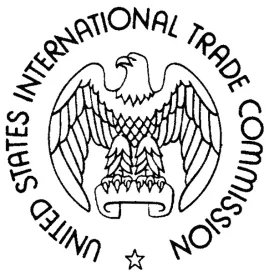The US Court of Appeals for the Federal Circuit denied a request for rehearing en banc in ClearCorrect Operating v. Int’l Trade Comm’n, (IP Update, Vol. 18, No. 11), leaving in place a 2–1 decision that the term “articles” in 19 USC § 1337 is limited to tangible items. ClearCorrect Operating, LLC, et al. v. Int’l Trade Comm’n, Case No. 14-1527 (Fed. Cir., Mar. 31, 2016) (per curiam) (Prost, J, concurring) (Newman, J, dissenting).
Appellant ClearCorrect manufactures orthodontic aligners. In the United States, ClearCorrect would scan a patient’s teeth and digitally recreate the tooth arrangement. The digital file was transmitted to Pakistan, where a new set of digital files of intermediate tooth positions was created. Those digital files were then transmitted back to the United States, where ClearCorrect would use a 3-D printer to make aligners from the digital files. The US International Trade Commission (ITC) found that transmission of the intangible digital files into the United States was an importation of an “article” under § 337, and issued a cease and desist order to ClearCorrect’s Pakistani affiliate. A Federal Circuit panel, over the dissent of Judge Newman, reversed, ruling that the ITC exceeded its authority because the term “articles” in § 337 was limited to tangible goods. Both the ITC and intervenor Align Technology requested rehearing en banc, with a number of amicus briefs filed in support.
The full court nonetheless denied the request for rehearing in an 11–1 per curiamopinion, with Judge Newman dissenting. The dissent argued that limiting the ITC’s jurisdiction to tangible goods is inconsistent with prior rulings, particularly Suprema, Inc. v. Int’l Trade Comm’n, (IP Update, Vol. 18, No. 10). In Suprema, the en banc court found that “the legislative history [of § 337] consistently evidences Congressional intent to vest the [International Trade] Commission with broad enforcement authority to remedy unfair trade acts,” and since US Customs and Border Protection had already determined that transmission of software from a foreign country to the United States via the internet was an importation, § 337 should not be read to exclude authority over such transmissions.
The dissent also noted that nothing in dictionaries from the relevant era or § 337 justified a physical limitation on the term, and that even if an exclusion order could not be enforced, respondents could still be subject to a cease and desist order, removing the argument that leaving “article” unlimited would create an unenforceable remedy.
Finally, the dissent argued that even if there was some question as to whether the term “article” covered digital goods, the ITC’s interpretation was entitled to Chevrondeference. Judge Prost wrote a brief concurrence in response to Judge Newman’s dissent, reiterating the panel opinion’s view that if Congress had wanted the ITC to have authority over digital importations, it would have provided for that authority explicitly. Judges O’Malley and Wallach joined the concurrence.
Practice Note: This is the second opinion in the past year to interpret the phrase “articles . . . that infringe” in § 337. In Suprema, the en banc Federal Circuit decided in favor of the ITC’s preferred interpretation, and the respondent did not requestcertiorari. Now that the Federal Circuit has chosen to leave in place an interpretation of the phrase adverse to the ITC, the ITC will have to decide whether to petition for cert.




 />i
/>i
